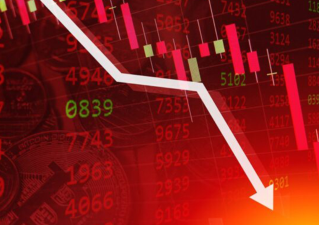An economic crisis refers to a situation in which a country or region experiences serious economic problems, leading to a series of negative impacts such as stagnant economic activity, declining production, and rising unemployment. Economic crises not only cause significant losses to individuals and businesses but also have profound impacts on society as a whole.
To prevent the occurrence of economic crises, governments and economists around the world are actively exploring and implementing a series of preventative measures.
Macro-Level Preventative Measures
- Strengthening Regulation and Regulating Financial Markets
Financial markets are the core of economic operations and a key channel for economic crises. Strengthening financial regulation and establishing sound financial market rules are important means of preventing economic crises. The government should strengthen oversight of financial institutions, improve risk management systems, enhance financial market transparency, and prevent the occurrence of financial risks.
- Establishing a Stable Monetary Policy
Monetary policy is a key tool for macroeconomic regulation. The government should formulate a prudent monetary policy, maintain a stable money supply, and prevent inflation and deflation. At the same time, it should strengthen exchange rate management to prevent large exchange rate fluctuations from impacting the economy.
- Promoting Structural Reform
Structural reform is the fundamental way to resolve economic problems. The government should promote industrial restructuring and increase support for emerging and high-tech industries to improve the quality and efficiency of economic growth. Furthermore, it should strengthen investment in education, science and technology, and talent development to enhance the innovation capacity and competitiveness of society as a whole.

Micro-level preventive measures
- Strengthen enterprise risk management
Enterprises are the fundamental units of economic operation and the main drivers of economic crises. Enterprises should strengthen risk management, establish and improve internal control systems, and enhance their ability to withstand risks. At the same time, they should strengthen market research and forecasting, adjust business strategies in a timely manner, and reduce operational risks.
- Improve consumer financial literacy
Consumers are a vital component of the economy, and their consumption behavior directly affects economic stability. Improving consumer financial literacy, strengthening financial management education, and guiding consumers to consume rationally and avoid excessive borrowing and speculation will help maintain economic stability.
- Strengthen international cooperation and exchange
Economic crises often have global characteristics and require a joint response from all countries. Strengthening international cooperation and exchange, sharing experiences and information, and jointly developing response strategies will help prevent and resolve economic crises. At the same time, we must strengthen the reform and improvement of the international financial system and enhance global financial governance.
